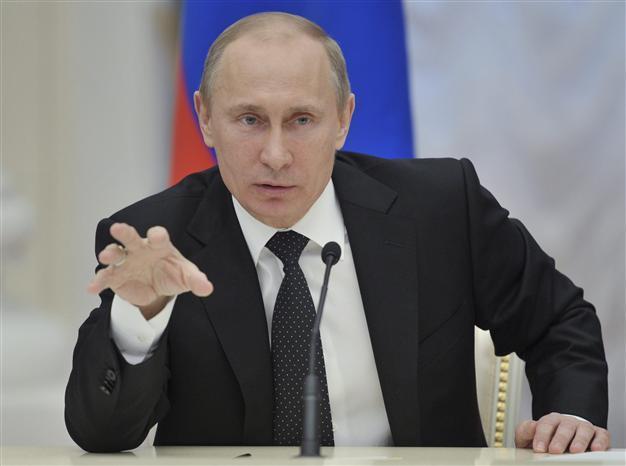Russia 'has not, will not' change Syria stance
MOSCOW - Agence France- Presse

REUTERS Photo
Russia said on Friday that it had not changed and would not change its controversial stance on Syria, after a top Russian diplomat said the defeat of the Syrian regime was possible."We have never changed our position (on Syria) and we never will," foreign ministry spokesman Alexander Lukashevich said.
Deputy Foreign Minister Bogdanov said earlier this week the Syrian regime "is losing more and more control" and it was not excluded that President Bashar al-Assad could lose the conflict with the rebels.
The United States swiftly welcomed Bogdanov's comments, saying it appeared Moscow was "finally waking up to the reality." Lukashevich retorted Friday that "we were never sleeping to begin with."
"Our position remains in effect," he told reporters. "It is unchanged." It is not clear if Bogdanov -- who is also the Kremlin's special envoy for the Middle East -- was aware that his remarks Thursday were on the record and would be reported by Russia's news agencies.
Russia has so far refused to turn against Assad's regime despite the conflict, which according to rights groups has killed 42,000 people since March last year.
It infuriated the West and anti-Assad Arab states by refusing to cut military and other ties with Damascus established during the Soviet era with the president's father and predecessor Hafez al-Assad.
Russia developing new long-range ballistic missile
MOSCOW - Agence France- Presse
Russia is developing a new intercontinental ballistic missile, the
military announced on Friday, in an apparent attempt to remind the
United States of Moscow's rocket capacities.
Revealing the
existence of the project for the first time, rocket forces commander
General Sergei Karakayev said that several test launches of prototypes
had already taken place and the work was on the "right path", Russian
state media said.
Karakayev said the latest test was on October 24 at the Kapustin Yar firing range in the Astrakhan region of southern Russia.
He
appeared to link the solid-fuel missile's development to controversial
US plans to install missile defence systems in central Europe which have
long angered Moscow.
"The solid fuel missile will allow us to
realise possibilities like the creation of a high-precision strategic
missile with a non-nuclear warhead with practically global range,"
Karakayev was quoted as saying by the state RIA Novosti news agency.
He said that the new 100-tonne missile would be able to overcome any existing missile defence system.
Karakayev
added the missile would also be effective in combating any future
missile defence system that the United States could install in space.
He said that the missile would ultimately replace Russia's new generation of intercontinental missiles the Yars and Topol-M.
















